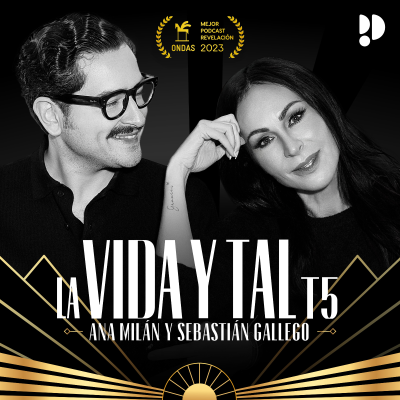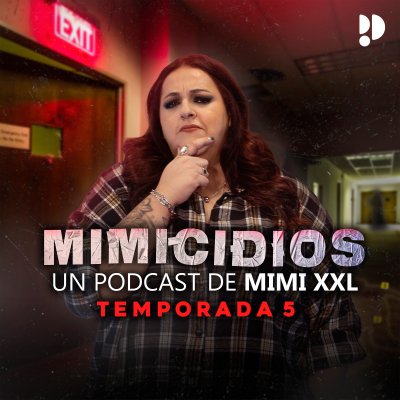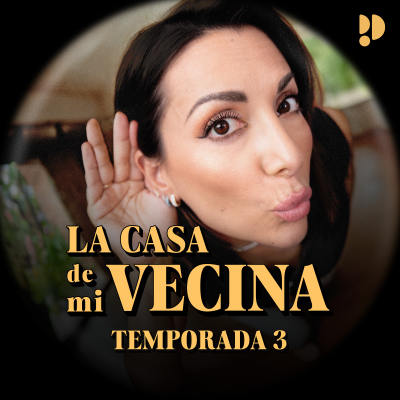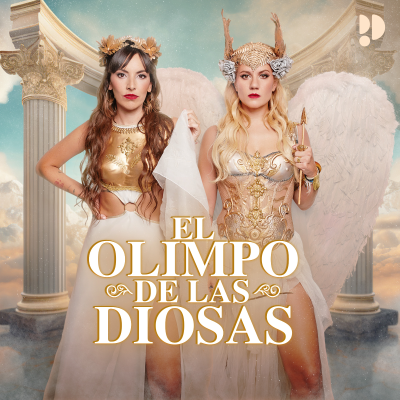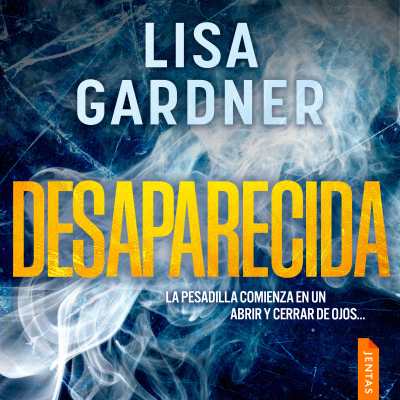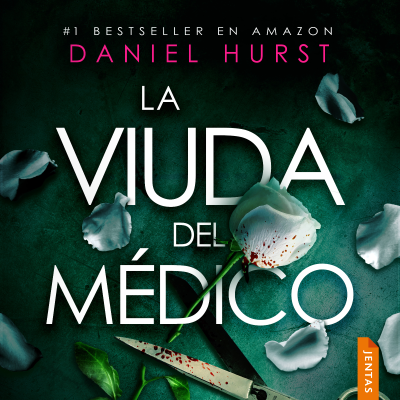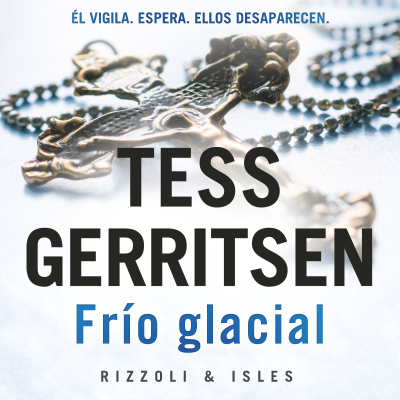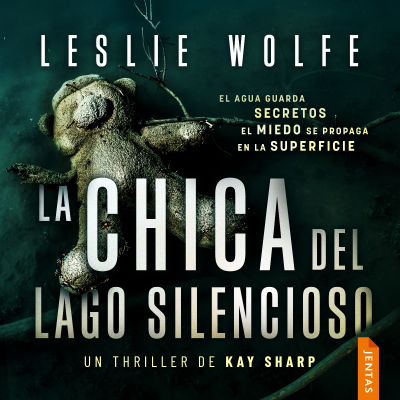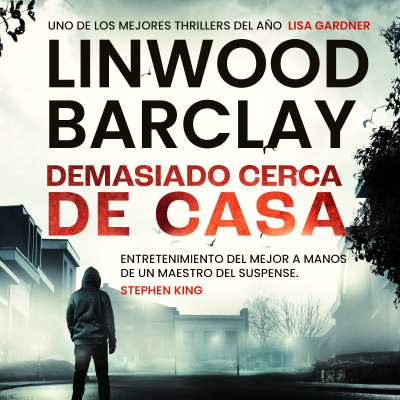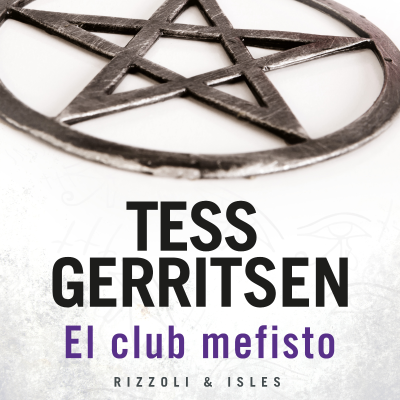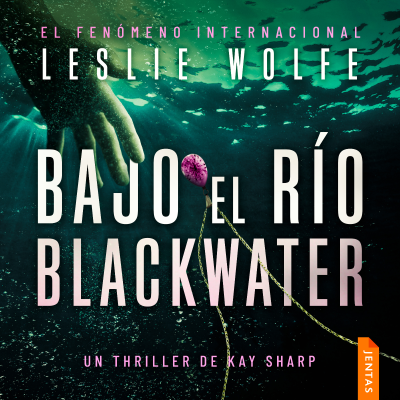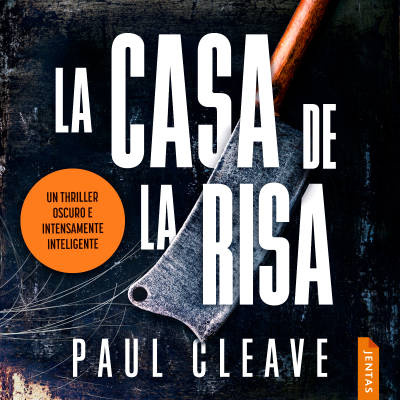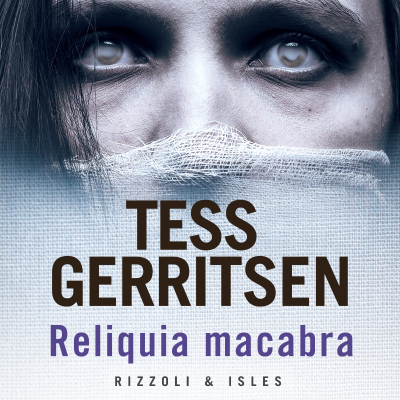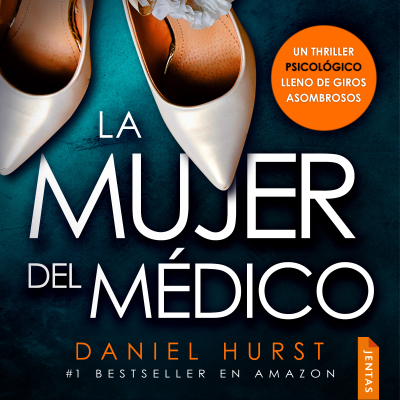
Sequoia WealthBuilders
Podcast de Sequoia Financial Group
Sequoia WealthBuilders is a podcast aimed at educating and empowering individuals about their finances, savings and how to reach their financial aspirations. Join our host, Sara Gans, CERTIFIED FINANCIAL PLANNER™, as she dives into key topics with guests from various backgrounds to simplify building your wealth.
Disfruta 90 días gratis
4,99 € / mes después de la prueba.Cancela cuando quieras.
Todos los episodios
3 episodiosSara: Welcome to Sequoia Wealth Builders, a podcast that provides tangible steps and fun discussion on how you can maximize your investments and grow your wealth. I'm your host, Sara, Advisor at Sequoia Financial Group. On today's episode, we're talking all about value based investing. I'm speaking today with Leon, who's the Chief Growth Officer of Sequoia. Thanks for joining us, Leon. Leon: Thanks, Sarah. Good to be here. Lots to talk about today. Sara: So Leon, lately we've been hearing more and more about dolphins returning in the Venice canals, the Himalayan mountains being seen from distances that we haven't been able to see since World War II. And I think people are a lot more conscious about the world that we're living in and taking care of the world. Have you been seeing that as well? Leon: I have, Sarah. It's been interesting. We had a giant decline in CO2 emissions during the COVID crisis and that happened basically globally. Like you said, we're seeing a lot more of things that we haven't seen in a long time. It gives rise to what I see a lot of interest in is ESG investing, environmental, social, and governance, and also what I formally called socially responsible investing or SRI. We're a little bit different. SRI is like a filter, and it filters out all the bad stuff. So no alcohol, no cigarettes, no gambling, all the things we like to do and all the sin stuff. And at the same time, ESG puts the good things in. So an ESG fund might say, "I'm going to go invest in clean energy sources," or an ESG fund might say, "I'm only going to invest in companies that have good corporate governance." So I'm kind of an ESG guy more than an SRI guy. I like the E because that involves climate change, like you're talking about, being able to see the Himalayas or air and water pollution or biodiversity or deforestation, water scarcity, energy efficiency. I think those are all important things. The S is customer satisfaction or data privacy, gender and diversity. Boy, big topic we see these days. Employee engagement, human rights, labor standards, being able to pay people reasonable wages. And I'm getting a lot of clients calling me and saying, "How do you invest in good corporate citizens?" Because people are starting to really look at that. That's a lot more important. The Ben & Jerry's of the world or the Starbucks of the world are companies that people look at to say, "Are you being good corporate citizens?" And then finally is the G. What's the governance of the company? What's the board composition? How do they pay their executives? Are they heavy duty into lobbying? What are their political contributions? So lots involved with this ESG and SRI and even impact investing, Sarah. Big time out there. And the amount of money going in is astronomical. Last quarter, 46 billion went into ESG type investments when 385 billion went out of other investments. People were taking their money out of other places and putting it into this kind of value based investing. Sara: That's very interesting. That's great numbers to know. I've been seeing the same things as well with individuals wanting to invest based off of their values rather than their balance sheets. So who do you think should be looking into this ESG investing and how do you think it's affecting individuals? Leon: Well, I mean, the number of people getting involved in it has gone up dramatically. And according to a Deloitte study, in 2017, 48% of people were considering ESG type investing. It was up to 75% in 2019. And just the surge in the dollars tells me it's a lot more than that now. I think people who want to have a value tilt, not a value tilt in the sense of financial value, but in the sense of their personal values, that people want to invest within their personal values, should consider ESG. So my daughter is firmly committed to climate change, and so she wants more clean energy in her portfolio. So I have her portfolio with normal index funds and then some indexes that go toward clean energy. And you don't put everything into clean energy, that's not the right approach, but you put things toward that. And I've explained to her, look, you're doing this and this may not pay off for you. You may have been better off investing in internal combustion engines. And she said, "I don't care. I want to invest in things that go with what my belief system is." And I think if your belief system is strong and you want to change that into your investment policy, that's a good way to look at it. Sara: Sure. And you don't necessarily need to give up a lot of performance to invest in what your values are. With all the different diversified funds that are currently being put onto the market, there's more and more every day that we're seeing that are ESG funds and ETFs that we can be investing in. And there's such a broad spectrum of different types of ESG investing, from picking specific stocks within a fund, and Leon, you can talk a little bit more about that, to having diversified mutual funds within the US market, emerging markets, international markets, and everywhere. Leon: And you bring up a good point, Sarah. First of all, in the old days when we invested SRI, when we just did the screen and we took out the sin stocks, somebody immediately discovered that the sin stocks were not only fun but they made money. So you could make money owning cigarettes and beer and gambling, and it took your return down. That's not necessarily true with ESG. So I've actually seen ESG investments that have outperformed other indexes, and sometimes it's accidental and sometimes it actually just works by the intention of the ESG. So sometimes having a good value based system works both ways. You get to make more money and do the other part of it. You can go buy individual stocks and you can do that based on your own personal values. I think generally you want to have enough stocks, they diversify around it, and it's kind of the tricky way of doing it. I generally don't do that. I'm more prone to go with mutual funds or ETFs, and there's plenty of good ones out there. The cost now has gotten so low that I can get basically almost within one basis point or 1/100th of a percent of what I'm going to be able to get on a regular index fund. And I can still have my ESG. And full disclosure, Sarah, in my donor advised fund, I have an ESG based tilt. Mine is all ESG tilted. And I use it on a diversified group of funds that I like within my DAF. So, I like it. I think it's a good way to go. And it makes me feel like my charitable monies are also doing well in terms of the investments that I'm making. Sara: Exactly, to do well for the world. So do you see any cons to investing in ESG or SRI? Leon: Well, you got to remember. Sometimes it cost money to do that. I mean, windmills aren't necessarily great moneymakers right now, neither are solar panels. So, those might be helping the environment, but aren't necessarily good ways to make money. You have to recognize that. Now, electric vehicles right now seem to be environmentally safe and boy, good way to make money too. So it's a little tougher in there. If you say, "I don't want any tobacco stocks and I'm completely convinced I don't want tobacco stocks," then you can do it that way as well. It's interesting to say, Sarah, there's a SMA that we use called Parametric, and I can parse that down to an individual index. I can make my own custom index that reflects everything from a religious value, to my tax preferences, to my ESG preferences, all the way down the line. And they have all kinds of ways of quantifying the governance of different companies and giving that quantification. So, I think there's a lot of ways that we can do it. The cons, recognize you might not get the return you would have gotten elsewhere. It's clinically proven that you might be able to make money on some things you don't want to do. Jet planes can make you money sometimes, and tobacco and cigarettes can make you money, and so can oil. But if you want to invest in clean energy or no war, then that's your privilege and your prerogative, and you're still taking advantage of the system and the ability for companies to make money. Sara: Sure. That certainly makes sense. Thanks for joining us today, Leon. And thanks to our listeners for joining us on this episode of Sequoia Wealth Builders. If you want to learn more about ESG, email me at sgans@sequoia-financial.com. Also, please subscribe to our podcast and share on social media. Leave us a comment and let us know what topics and segments you'd like to hear next. Until our next episode, stay well and keep striving to build your wealth. Disclosure: Investment advisory services offered through Sequoia Financial Advisors, LLC, an SEC Registered Investment Advisor. Registration as an investment advisor does not imply a certain level of skill or training.
Sarah Gans: Hello, and welcome to Sequoia Wealth Builders, a podcast that provides tangible steps and fun discussion on how you can maximize your investments and grow your wealth. I'm your host, Sarah Gans, Advisor at Sequoia Financial Group. On today's episode, we're talking all about insurance. I'm speaking today with Michelle Hirsch, who is the Senior Vice President at Brunswick Companies, which is a third generation family owned business that her grandfather started. Thanks for joining us, Michelle. Michelle Hirsch: Thank you, Sarah, for having me. Sarah Gans: I really appreciate you taking the time to educate us on property and casualty insurance. Michelle recently did a review of my insurance policies and I was shocked to see some of the things that I should have been looking at that I didn't even know that I needed to. So I'd like to start with home insurance, if you don't mind. Michelle Hirsch: Sure. Sarah Gans: So I recently bought a house in Tampa and there were a lot of different areas that I didn't even think to look at. I essentially went with our realtor's recommendation on an insurance company. So can you kind of go through what specific areas individuals should be looking for within their policies when doing a review or looking for a new provider? Michelle Hirsch: Sure, absolutely. It's very intimidating when you're buying that first house or looking to buy a new house. You have mortgage brokers that are hounding you to get proof of insurance and you have 10,000 other things on your list buying this new home. But, really, looking at your home insurance is so important because there's so many different coverage definitions, exclusions, endorsements, and every policy is different. And that's what I think people don't realize is that no two policies are the same and it's not necessarily a get what you pay for kind of world. You could get far better coverages and still pay less. My recommendation is to work with an independent broker because they save you time, they have access to all these different carriers, and they really understand their stuff as opposed to going online or working with a captive broker, so the brokers that only work with one carrier, agents that are married to one carrier, it's very limiting. So having as many options out there as possible, an agent that can put together a comparison chart for you, and also walk through each one of the coverages to explain to you what these things actually cover and is it important? Being a homeowner, there's a lot of responsibility there, so when you wake up one day and there's water on the floor, you say, "Oh my goodness," at least have an idea of how your policy would respond. And so education is key. This is not something that's another transactional, check the box, set it and forget it. It's really important to understand your policies, but it's important to have a trusted advisor in your agent that can walk you through all that stuff and educate you. Sarah Gans: I was actually really surprised to know within my policy that if something were to happen in my house were to burn to the ground, I wouldn't be able to cut a check for the value. I would essentially need to rebuild exactly on that plot of land, and it's a town home, which could be very difficult to do. Michelle Hirsch: Yes, absolutely. Having a cash out option is key. You want that flexibility. Who knows if you're going to want to rebuild the house or if you want to just take the check and move on with life. And if you are able to take the check, having the right amount, that value, making sure that your home is valued correctly, is really important because what should be listed on your policy is replacement cost, not how much you bought or could sell it for. It's how much it would cost if that tornado came through and you had to rebuild it from the ground up. And most people don't realize that and or aren't getting the right guidance to make sure that, that number is correct. Sarah Gans: That's really helpful information and I know for the liability protection, it's all of the things that you own. So your furniture, your clothes, all of that. So what do you recommend doing to make sure that, that is covered in its entirety as well? Michelle Hirsch: Sure. So on your policy, you have a separate line just for personal property, and this is all of your stuff. So if you took your house and you turned it upside down and you shook it, what falls out, what's not attached to the house? So all your furniture, your appliances, your electronics, your clothes, your shoes, anything that you have to go out and buy to refill this house, that's all considered personal property. So what happens is, is that's an automatically defaulted percentage of the dwelling amount on your policy. So it's not really a number that has been calculated in any scientific way. So what we suggest is go room by room, take photos and videos and do a little inventory and say to yourself, "How much would it cost to rebuy all of this stuff?" And then see what that number comes to, and then double check your policy to see if it's the right number. Michelle Hirsch: It's really cheap to increase that amount and it's really important to have documentation because the last thing you want to be doing is fighting with an insurance adjuster on how big your television is. But if you have the picture, there it is. That's what I'm going to request when I want my check to go out and buy a new TV. Sarah Gans: Sure. And my fiancé loves sports memorabilia. I have an engagement ring. Are those things included if they were in the house at the time that something happened? Michelle Hirsch: That's a great question. And no. So any collectibles or any jewelry or art is not considered personal property because it has a higher value. So all of the personal property will be replaced at replacement costs. But if you have things that are special and have collectible value, you have to go out and get actual appraisals for it. And then you can schedule it on your policies for that specific appraised value. A lot of people think that things would be included in that personal property but you really have to go through and spend the time to get the appraisals to have that scheduled to separately. Sarah Gans: That's great. How often should people be reviewing their home insurance policy? Is it in a set it and forget it type of thing or should you review every few years? Michelle Hirsch: We say every three to five years, but also if there's a specific event that could drive it. So you buy a new house, you're building a house, you have a teenage driver now, you bought a third car, you bought a vacation home, you're retiring, you're bringing on a nanny or an au pair, things that are changing in your life, that means that your risk profile is also changing. You've come into some assets, whether via inheritance or selling a business. You're now more collectible because you now have more assets or things are changing and you want to make sure that everything is protected properly. Sarah Gans: That's really helpful. I'd like to move to auto insurance, if you don't mind. Michelle Hirsch: Sure. Sarah Gans: So the car insurance was another area that I wanted to make sure that we were going over. I know during quarantine, I had lowered my limits to the state minimum because I wasn't driving anywhere. But now that I'm back to going out and about, I want to make sure that I'm properly covered. Liability insurance is so important with this coverage. So can you give us some recommendations on how much liability insurance you should have at a minimum. Michelle Hirsch: From a liability perspective, you never know what's going to happen in the car. You never know what's going to happen outside the car either, and the last thing you want to do is be sued because you injured someone and your policy not have enough to pay out that claim and then you have to come up with the money out of your own pocket. And that's what the liability protection, where that comes from. Typically, we recommend maxing out your liability, and in addition to that, getting an umbrella policy, which I know we'll get to. But that umbrella policy goes on top of your liability, on the auto, and on your home. And the other thing to note is that it follows you worldwide. So if you're on vacation and something happens and you injure someone or damage someone's property, it also covers all of your household members. So if your kid's playing sports and injure somebody else or they're driving someone else's car, all of these things, everybody within the house is going to be protected. Michelle Hirsch: And especially with COVID, now that we have people moving around, we want to make sure that if they're grown adult child has moved in with mom and dad, that they alert their insurance agent because now they're driving these cars of which they were no longer a listed driver because they were adulting and living on their own but now they're back in the house. So mom and dad need to call their insurance provider to let them know that they have an additional listed driver. Sarah Gans: That's really helpful. And having an umbrella policy in addition to that, I'm sure adds an extra layer of protection there. Michelle Hirsch: Exactly. Sarah Gans: So why would it be important to have an umbrella policy and who should be the individuals who own one? Michelle Hirsch: Every single human being should have an umbrella. I'm serious. We make people, all of our clients that don't want it for whatever reason, sign off that they didn't want it. You are so exposed by just being. It's not about being a bad driver, it's not about being a bad person, it's about being in the wrong place at the wrong time. I have so many stories of incidents where there was nothing wrong that this person did, it was just was bad luck and now they're on the hook because someone was injured and they got sued for millions of dollars and thankfully they had the umbrella and that's what paid them out. It's just you never know what could happen. And it's so cheap. I mean, you could get a million dollars of coverage for $125 for the whole year. So it's just so worth it to protect. Michelle Hirsch: How much umbrella is always a great question that people always ask me. Some people say a million over your net worth just to protect the assets that you have. We can right up to a hundred million in umbrella, but I actually don't really subscribe to that philosophy, because I think that it's more based off of your circumstance. So if we have two young professionals who just got out of college but got awesome jobs, they may have nothing but debt or may not have any assets yet, but their future earning potential is off the charts. So we need to make sure that they have an umbrella because the last thing they want is to have their wages garnished or file for bankruptcy early because they can't pay this claim. Michelle Hirsch: On the flip side, we could have a very, very wealthy family that is not going to buy a hundred million dollar umbrella. At some point, they're willing to self-insure. So it's more so about what makes you feel comfortable, how much you're willing to spend, and also what your exposures are. I always encourage my clients once they have teenage drivers to up their umbrella, just because. So it's so important and it's so cheap, and nobody's talking about umbrella insurance. So your mortgage broker forces you to get homeowners insurance, and you can't take your car off the lot without showing proof of auto insurance, but nobody's saying to anyone, "You have to have umbrella insurance." And that is, I think, the most important of all because all it takes is one issue and then you're just ruined financially for the rest of your life. Sarah Gans: Absolutely. And I know that you've shared with us some really interesting stories of things that you just couldn't even make up if you want. Michelle Hirsch: It's so true. Sarah Gans: It's so important to have that umbrella policy, because just as you said, you never know what's going to happen. So would you say for all of these different types of policies, is it better to bundle them or is it best to find the best carriers in each area? Michelle Hirsch: So you're going to get the best pricing, and just from the coordination of a claim I always recommend that, if you can, have one carrier for the whole thing. Sometimes it doesn't work out. Sometimes depending on your state, sometimes depending on the driving records, they may want your home and umbrella but not your auto. But it is always your first go at this, should always be, to try to get it all with the same carrier and bundle it together. Sarah Gans: I'm newly engaged and I live with my fiance. Should we be looking to combine our insurance or should we keep that separate until we get married? Michelle Hirsch: Absolutely. If you're living in the same household, that's really the defining characteristic. So even if you were just in a domestic partnership but you're living in the same household, you can combine insurances. The insurance always follows the title of the car. So I just had a client yesterday where they are engaged and they are getting married in July. They now are about to move into his place. And she is still on mom and dad's insurance on the car. She still lives at home. And so I walked them through that process of mom and dad are going to have to change the title of the car to her name and then we will quote the new policy with the couple, both cars and the home. So it's important to kind of just figure out where everybody is. But as long as they're in the same household, living in the same residence, we can make it work. Sarah Gans: That's great information. It looks like we have some work to do in our household. I really appreciate you taking the time to educate us on insurance. If anyone would like to contact you to know more, how should they contact you? Michelle Hirsch: Sure. So I give out my cell phone. Like I said, my grandfather started this business in the early so I grew up watching my dad and my grandpa taking calls on the weekends, on vacations, and just being very accessible. My cell is 330-606-8594, but you can also email me at mhirsch@brunswickcompanies.com or you can visit our website, all kinds of ways to find me. Sarah Gans: It sounds like you're very accessible. So we certainly appreciate it. Thank you for all of our listeners joining us today for this episode of Sequoia Wealth Builders. If you'd like to discuss further or have any questions, please email me at sgans@sequoia-financial.com. Also, please subscribe to our podcast and share on social media. Leave us a comment and let us know what topics and segments you'd like to hear next. Until our next episode stay well and keep striving to build your wealth. Disclosure: Investment advisory services offered through Sequoia Financial Advisors, LLC, an SEC registered investment advisor. Registration as an investment advisor does not imply a certain level of skill or training.
Sara Gans: I've been speaking with a lot of individuals who have been finding themselves adding some surplus savings with everything going on because they're not out spending money. So, Leon, are you in the black or are you in the red? Leon LaBrecque: Yeah, I'm in black. I've been cooped up at home and my money has been cooped up at home with me, Sara. So, I was looking at our bank accounts and looking at our budget and there's a whole bunch of things that fell off the budget. I was supposed to go to New Zealand this month, I'm not going to New Zealand and that's been canceled, my health club canceled, we can't go to the gym, so I'm not paying my health club memberships. I'm not driving my car. I'm not going out to eat. As a matter of fact, all I'm doing is spending all my money fluttering it away on Amazon and Etsy these days, it appears. But we're clearly ahead. How about you? Are you ahead of the game or behind the game? Sara Gans: Yeah, we're in the same boat. We had to cancel our vacation, unfortunately. I'm not driving anywhere, so I lowered my car insurance to the state minimums and received a refund there. So yeah, we're also building up a surplus and there's some things that we could be doing to be maximizing that surplus in today's world. So I wanted to go over a few things that our viewers can be doing, if they're also in the same boat as us, to put themselves in a good financial position moving forward. Leon LaBrecque: Sounds good. What do you want to talk about? Sara Gans: Keep that surplus in cash. And I know we talked about emergency reserves before, but I truly believe that they're so important. And prior to everything going on, and my recommendation was typically to keep about three months or so of expenses and cash, but with everything going on, what are your thoughts in terms of how much you should be keeping in cash? Leon LaBrecque: I tend to deal with some of our older, more affluent clients and a lot of professional clients. So we have definitely upped that from the three months. And I've been building up cash reserves for clients anywhere from six months to a year, just because no one knows when this is going to end and how it's going to transaction out. So we're building up a cash reserve, we're okay with the low rate of return. I've had people too, who had built up reserves for future expenditures when they put those on hold. So I have a client who was going to buy a car and he had set aside a specific amount of money for the car, And we were talking and I said, "Well, are you still going to buy the car." And I said, "The deals are good and all." And he goes, "I'm not sure. We're not sure whether we're going to buy this thing or not." And I said, "All right, well, if you're not sure, then let's park the money somewhere and make some interest on it, as opposed to just letting it sit around on a checking account, making two tenths of a percent or something." So what are you telling your clients? Yours tend to be more younger and more growing in the affluence. Sara Gans: It truly depends on job security and if there's any type of job security issues that you think could be an issue moving forward, we recommend having more than less. So potentially up to a year of cash reserves, plus any projects coming 12 months or so. If you are a little bit more stable in your job, probably closer to six months. Leon LaBrecque: I think a lot of people going through this wished they had three months expenses sitting in their checking accounts or their bank accounts. I just can't help that. It's always one of those things that a lot of people wish they had healthcare powers of attorney and a lot of people wish they had cash reserves and maybe we can learn some lessons from that. But I think I'm with you, cash reserve, first thing, first and foremost. Okay. So let's suppose I got my cash reserve built up, what's next? Sara Gans: Some would say increasing the allocation to, potentially, your 401(k) or your 403(b). I know with me, personally, if I increase my allocation, I don't necessarily miss the money because I don't see it coming into my checking account every pay day. If you're able to increase your allocation, it certainly could help in the long-term. Leon LaBrecque: So, how much could you put in? Would you just look at your budget and say, I'm up by 200 bucks a month or 200 bucks a week, I'm going to put an extra, $100 of that in my 401k? How would you do it? Sara Gans: You can do it either by dollars or by percentage. The limit to contributing to your 401(k) is $19,500 per year. And if you're 50 or over, you can put in a catch up provision of an additional $6,500 per year. So there's certainly different ways that you can put money into place for that. Leon LaBrecque: Some companies are stopping their 401(k) contributions, they're matching. What do you tell people if they aren't going to get the match? I've had people, "Well, I'm not going to get a match, should I just keep contributing?" What's your attitude on that? Sara Gans: I still recommend contributing because there are so many perks to 401(k). There's longterm growth that you could get out of it. You can dollar cost average into the market, which would mean every payday when you're buying in, you can take advantage of some of the volatility that we've been seeing, which is a great perk. So essentially what you're buying into now, is less than what you were buying in, in February. Leon LaBrecque: So what do you like? Do you like the Roth option or the traditional option? Pre-tax or Roth? I know what I've been telling my clients. What are you thinking? What are you doing? Sara Gans: It ultimately depends on where their income is and what things look like from a tax [inaudible 00:05:41]. Typically, I recommend a mix of the two to take advantage of some tax stability while creating a pool of dollars that would be tax free in retirement. How about you? Leon LaBrecque: I've been talking to clients, and usually a lot of mine are business and they're having a bad year, so their income's down a lot, so they're in a low tax bracket this year. If you're in a low tax bracket, I really liked the Roth because I'm pretty convinced it will be in higher tax brackets in the future. And because of some new laws, including one that passed last year called secure, the tax rates are going up in terms of retirement plans. So I like a Roth for two reasons. It's a downmarket, Roth growth would be all tax-free and it's a down income year, so I'm in a low income tax bracket, so I could do the Roth. So I like that. I know you're keen on Roth IRAs. That's another thing we could do, isn't it? Sara Gans: Yeah, absolutely. If you don't have access to an employer sponsored retirement account, or if you've already maxed that out, there's some ways that you can save with Roth IRAs as well. And you can put up to $6,000 per year, and if you're 50 or over, you can put an additional $1000 per year in them. And they're very easy to open. You can contact us, they can be opened at Schwab or Fidelity and they can link right to your checking account. So it's incredibly easy. And then depending on your risk tolerance, we can go ahead and invest that. Leon LaBrecque: There's a cool rule because during this crisis they extended the due date of the filing of the tax return. You can actually make a 2019 contribution until July 15th, can't you? Sara Gans: Absolutely. And that would allow you to put in more for 2019 and then potentially a 2020 contribution up to April 15th of 2021. Leon LaBrecque: Now, Sara, people don't have to put $6,000 in, right? They can set up a Roth IRA with a few bucks, 20, 30 bucks if they want, can't they? And isn't there an advantage to just having one in the first place? Sara Gans: Yeah, absolutely. You're able to use your principal if you needed it and it can continue to grow tax deferred and then you can take it out tax free as well. Leon LaBrecque: Also, there's a five year rule that we really want to trigger, so the earlier you can start a Roth, the better. Like you said, you can take your contributions out tax or penalty free, but you got to have the Roth IRA for five years. So even if you didn't want to put a whole lot in a Roth, it would make sense to go start one. Even if you just had $1000 or whatever. We should probably do the 2019 contribution first, right? Sara Gans: Absolutely. I would max that out before starting the 2020. Leon LaBrecque: If I'm a married couple, only one of them has to have earned income. The limitation to have a Roth, all you need to do is to have earned some money and you can use that to fund your Roth IRA or your regular IRA for that matter. Sara Gans: Right. That's a great point. Leon LaBrecque: What else could we do with the money? Sara Gans: The last thing that we could do is pay down debt, and I know that there's good debts and there's bad debts. Can you describe what would be a good debt to continue making the payment on and what would be smart to pay down or pay off? Leon LaBrecque: Sure. I call these the wicked debts of the West and the good debts of the North. The wicked debts of the West are debts that you incurred for something you already ate, you already wore, you already did. So that's the vacation you took last year that you paid for on your credit card and you're still paying for it on your credit card balance. Credit cards balances are definitely wicked debts of the West. You can't live in today's society without a credit card, but you certainly can live without a credit card balance. So I'm fond of telling clients with these credit card balances and say, "Look, how would you like to make 14 and a half percent?" They go, "14 and a half percent? Sure I would." "How would you like to make it tax free with no commissions?" "Oh my gosh, that'd be great." Good pay off your credit card. So, getting rid of a debt is just like making an investment. That's our antiacid, Sara. I'm a big fan of... The only debt you ought to have is the debt when you're buying something that goes up in value. So, that would maybe be a debt to support your business or a debt to support your house. So mortgage debts are nice, those are good debts of the North. They're cheap. So if I got a three and a half percent mortgage and I deduct the interest payment, that's maybe only costing me 2.75% or 2.5%. I'm borrowing somebody else's money at 2.5%, and buying something that hopefully is going up three or 4%. Contrast that to a credit card where I'm borrowing money at 14 and a half percent to buy something that disappeared in value. I might have used it to buy clothes from J. Crew, or maybe used it to go on my vacation, and of course I want to go on vacation again, I can't wait to go on vacation and I can't wait to go out to eat again, but I'll use my credit card and pay off the balance. So I would say knock off some of those debts and it's just like making an investment. In fact, it's, riskless, paying off some of the debt. By the way, when you pay down a credit card, do not cancel the card, pay down the card and leave the card. It enhances your balance, it enhances your credit score. Your FICO score goes up when you have less utilization, but if you cancel the card, your FICO score can go down. So, it's important to pay attention to that piece of paying down debt. But, kill the wicked debts of the West. Sara Gans: Sure. And if you do have extra cash and you want to invest in the market, what would you do? Would you do a combination of all three? Leon LaBrecque: This happens all the time, when people get unexpected money and some of us are getting unexpected money now. I mean, I have a couple of clients who I've talked to and their kids are collecting unemployment, making more money on unemployment than they were working because of the special provisions. And I said, "All right, well, let's do something with this money." If you got a bonus, I would say, "Sara, take part of your bonus and make sure you've got a cash reserve, save it for today, take some of it and put it away for the future. Save it for tomorrow. And get rid of some of these debts." And if you did all three, you're being very unscientific, if you did each of those, those would all be good for you. What would be wrong with having more cash, something built up tax free for the long run and having less debt? I like all of those things. Sara Gans: Absolutely. Thank you for joining us, Leon. Thank you for everyone joining us on this podcast for Sequoia Wealth Builders. If you'd like to discuss further or have any additional questions, please email me at sgans@sequoia-financial.com.
Disfruta 90 días gratis
4,99 € / mes después de la prueba.Cancela cuando quieras.
Podcasts exclusivos
Sin anuncios
Podcast gratuitos
Audiolibros
20 horas / mes
